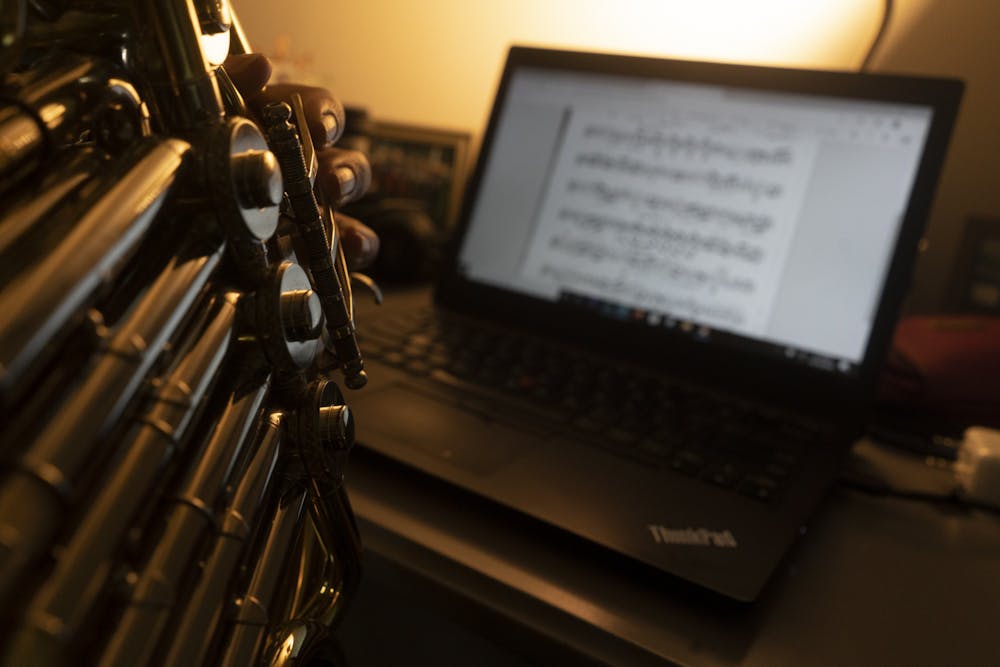With public health and safety risks causing classes to move online for the semester, many UNC music ensembles have also taken to an online format to continue creating music together.
At the beginning of the semester, ensemble groups announced that instruction would look different from years past. Groups like Charanga Carolina, which is a Cuban-style music ensemble led by associate professor Juan Álamo, initially planned to rehearse in person this year.
“Originally, when we started the semester, the first week we started rehearsing with students in different rooms, especially for Charanga,” Álamo said. “Since we do have instruments that they need to blow ... that’s a larger risk every time you have to sing or to blow an instrument.”
With the shift to online rehearsals, groups such as the Wind Ensemble have been utilizing software like Upbeat Music.
“It's like Zoom for ensembles,” senior Coco Chang, who plays the clarinet in the Wind Ensemble, said. “Basically, we play music to our laptops, against the metronome. And it automatically assembles videos together to create like an a cappella kind of thing.”
Chang said that part of the instruction now is also learning how to use recording equipment and edit the audio of themselves playing. She said that there are challenges with practicing her instrument remotely.
“Well, there's a lot of hurdles,” Chang said. "So for some people like me — I live in an apartment, which has really thin walls; I tried to not make too much noise. I limit how much I can play to not annoy the neighbors.”
Unlike Chang, some students have limited access to their instruments outside of campus. Álamo said that he, along with others in the music department, put a petition forward to allow students without access to their instruments to utilize the music building on a strict and limited basis.
Junior percussionist Justin Fligstein, who is a part of Álamo’s Classical Percussion Ensemble, said that due to the hard work of the music department, he has been able to continue playing. Fligstein said he has an allotted time that he is allowed to use the Kenan Music Building for an hour every weekday.



